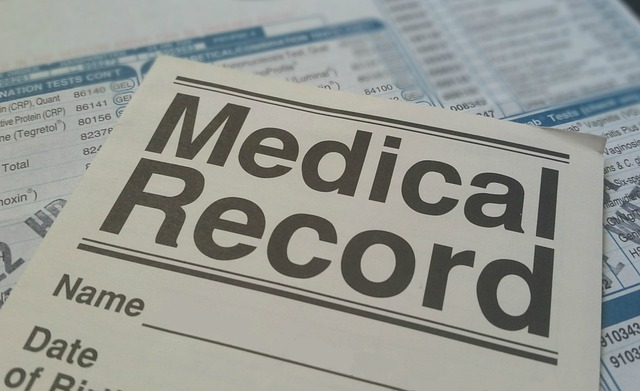For many women, getting a mammogram is an anxiety-inducing experience. After all, mammograms are the primary tool used to detect and diagnose breast cancer. It’s natural to feel nervous when undergoing any medical procedure, but if that anxiety is so intense that it prevents you from getting the mammogram you need, then it’s time to take action. In this article, we’ll discuss how to address mammogram anxiety so that you can get the care you need in a safe and comfortable way.
Mammograms play a critical role in both detecting and diagnosing breast cancer early on when treatment is most effective. Unfortunately, fear of the unknown or even fear of a possible diagnosis can prevent women from scheduling or attending their appointments. If this sounds like you, know that there are steps you can take to manage your mammogram-related anxiety and make sure you’re getting the care you need.
Understanding Your Anxiety
 It’s perfectly normal to feel anxious about undergoing a mammogram. After all, it can be an uncomfortable experience and the thought of being examined by a doctor or technician can be intimidating. It’s helpful to take a few moments to reflect on why you may be feeling this way and understand that your feelings are completely valid.
It’s perfectly normal to feel anxious about undergoing a mammogram. After all, it can be an uncomfortable experience and the thought of being examined by a doctor or technician can be intimidating. It’s helpful to take a few moments to reflect on why you may be feeling this way and understand that your feelings are completely valid.
To prepare for your upcoming appointment, it’s important to educate yourself on the mammogram process and ask any questions you may have before the appointment. Talk to your doctor about the procedure and how it will be done and ensure that you know what will happen during it so that you can feel more comfortable in the moment. Additionally, try to find someone who has had a mammogram before who can talk to you about their experience and provide support as you go through yours.
Managing Your Stress Response
It’s normal to feel some anxiety before a mammogram, but there are steps you can take to manage your stress response. First, it helps to be informed about the procedure and what to expect. Ask your doctor any questions you may have and research the process online if needed. Knowing what will happen can help reduce your anxiety levels.
In addition, try deep breathing exercises or visualization techniques when feeling anxious. Take slow, deep breaths and focus on each inhalation and exhalation. Or close your eyes and imagine yourself in a peaceful place that brings you comfort and joy. These strategies can help center you so that you feel more relaxed during the test.
Finding A Support System
It can be difficult to cope with the anxiety that comes with getting a mammogram. To help manage your stress response, it’s important to focus on self-care, such as getting enough sleep, maintaining a healthy diet, and participating in activities that help you relax. It’s also important to find a support system of family and friends who can provide emotional support and reassurance during this time.
Talking about your concerns with people you trust is often helpful when dealing with anxiety. If you don’t have someone close to talk to about your worries, consider joining an online or in-person support group for women who are facing similar issues. Having the opportunity to share stories, advice, and encouragement from others in the same situation can help reduce any feelings of isolation and make it easier to handle uncomfortable emotions associated with mammograms.
Seeking Professional Help
The fear of mammograms can be overwhelming, leaving many women feeling helpless and scared. For those who feel they cannot confront this fear on their own, seeking professional help is an important step to take. Talking with a therapist can help you identify the source of your anxiety and develop strategies and techniques to manage it. Additionally, talking with others who have experienced similar fears can be beneficial, providing much-needed support and understanding in a safe environment.
There are also resources available online that provide helpful tips for managing mammogram anxiety. These may include relaxation exercises such as deep breathing or progressive muscle relaxation, visualization techniques, mindfulness practices or simply reading educational materials about the process. By exploring these options and finding what works best for you, it may become easier to cope with the fear and anxiety associated with mammograms over time.
Preparing For Your Appointment
Being prepared for your mammogram appointment can help reduce anxiety and make the experience easier. Make sure you know what type of appointment it is, how long it will take, and whether or not you need to bring anything with you. Research the facility beforehand and familiarize yourself with their policies and procedures. You should also ask any questions that may arise prior to the appointment, such as which type of mammogram will be performed or how long results will take to get back.
It’s important that you wear comfortable clothing on the day of your mammogram. Avoid wearing jewelry or lotions on your skin as these can interfere with the imaging process. Bring a supportive friend along if it helps ease your mind, but keep in mind that they won’t be allowed in the examination room with you. Be sure to communicate any concerns or worries to your doctor before the procedure starts so they can provide reassurance and understanding.
What Do I Do If I Am Too Embarrassed To Talk To My Doctor About My Mammogram Anxiety?
It can be difficult to talk to your doctor about your mammogram anxiety, especially if you feel embarrassed. However, it is important to communicate any worries or fears you have so that your doctor can help you manage them. Your doctor likely has plenty of experience with patients who are anxious about mammograms and will be able to provide advice on how to cope with the situation. They may even be able to arrange for additional support or resources that can help you feel more comfortable during the procedure. Don’t be afraid to discuss your concerns openly with your doctor – they are there to help.
Are There Any Medications Or Supplements I Can Take To Help Me Relax Before My Mammogram?
Taking medications or supplements to help relax before a mammogram may be an option to explore. Some people find that over-the-counter anti-anxiety medications, such as benzodiazepines or beta blockers, can help them feel calmer during the procedure. Additionally, natural supplements like valerian root, chamomile tea, and lavender oil have been used to reduce anxiety. However, it is important to speak with your doctor before taking any supplement or medication in order to ensure it is safe and will not interfere with any existing medical conditions you may have.
Are There Any Techniques I Can Use To Reduce My Anxiety During My Mammogram?
Mammograms can be an intimidating experience, so it’s understandable to feel anxious. Fortunately, there are several techniques you can use to reduce your anxiety during the procedure. For example, focusing on deep breathing or visualizing a calming scene can help. You may also consider bringing a friend or family member with you for support, or listening to music through headphones to distract yourself from any discomfort. Additionally, talking with your doctor beforehand and asking questions about the process can help put your mind at ease.
What Should I Do If I Find Out I Have A Positive Mammogram?
If you find out that your mammogram is positive, it is important to make an appointment with a doctor as soon as possible. Your doctor will be able to discuss the diagnosis and potential treatment options with you. It is also important to remember that a positive mammogram doesn’t necessarily mean you have cancer; there are other conditions that can cause an abnormal result, such as cysts or benign tumors. Knowing what to expect can help reduce anxiety when meeting with your doctor and discussing next steps.
Are There Any Support Groups I Can Join To Help Me Cope With My Mammogram Anxiety?
Coping with mammogram anxiety can be a difficult and isolating experience, but there is help available. Joining a support group is one way to find comfort and understanding from others who are in the same situation. These groups provide a safe space to discuss your feelings and offer tips for managing mammogram-related stress. Your doctor or health care provider may be able to provide information about support groups in your area, or you can search online for resources.
Talking to your doctor about it is a great first step, as they can provide advice on medications or supplements that may help you relax. Also, there are techniques you can use during your mammogram that may help reduce your anxiety. If you find out you have a positive result, don’t panic – seek support from family and friends who love you and join a support group if necessary. With some courage and self-care, you’ll be able to get through this difficult experience. Don’t forget, you’re not alone.









